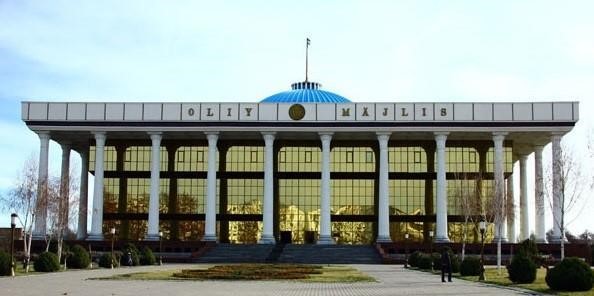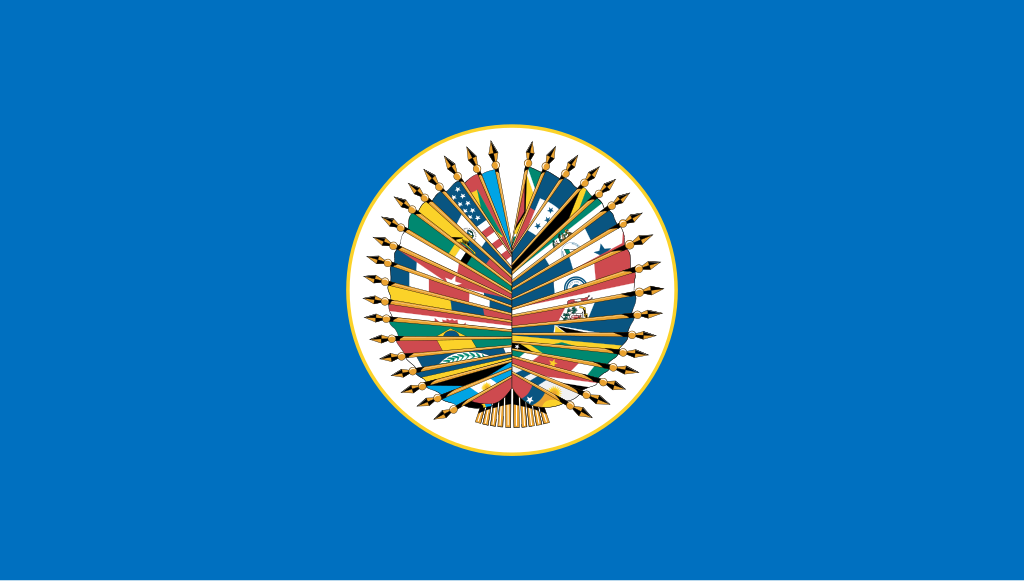The undersigned international human rights organisations express profound alarm at the recent approval of a new law by Oliy Majilis, the lower chamber of Uzbekistan’s Parliament, concerning the legal status of foreign citizens and stateless individuals. These amendments represent a flagrant violation of international standards on freedom of expression and pose a serious risk of isolating the country. We urgently call on the President to veto this proposal and uphold fundamental human rights.
On June 25, 2024, the Oliy Majlis approved a draft law regulating the legal status of foreign citizens and stateless individuals in Uzbekistan. The Oliy Majlis, conducting the required second and third readings of the draft law in rapid succession, adopted amendments to existing legislation that will grant authorities the power to designate foreign citizens ‘undesirable’ in Uzbekistan and impose five-year travel bans on any foreigner for vaguely defined offences such as ‘demeaning the honour, dignity or historical legacy of the people of Uzbekistan’. The legislation will now proceed to the Senate for approval, before reaching President Mirziyoyev’s desk for signature.
We, the undersigned international human rights organizations, are deeply concerned that authorities in Uzbekistan could exploit the new law to arbitrarily deny access to the country for international human rights defenders, journalists, academics, scholars, lawyers, researchers. We fear that this legislation could effectively ban all those advocating for human rights in Uzbekistan, and reporting on rights violations, corruption, abuse of power, the socio-political landscape, women’s rights, the environment and other politically sensitive issues. The adoption of provisions to impose entry bans on foreigners who shed light on human rights conditions inside the country, represents a sharp departure from President Mirziyoyev’s recent policies of deisolation, reform, openness and engagement with the international community.
We underline that these amendments contradict Uzbekistan’s international human rights obligations with respect to freedom of expression. If signed into law by the President they could severely restrict free movement and international exchange, contribute to the re-isolation of Uzbekistan internationally, undermining constructive dialogue with international human rights defenders, journalists, scholars and others whose inputs are crucial to secure the sustainability of President Mirziyoyev’s political reforms. Such measures would also damage Uzbekistan’s international reputation. We call on President Mirziyoyev to veto the law and ensure that Uzbekistan remains open to the international community.
According to a statement from the Oliy Majlis’ press service, the amendments were introduced to ‘provide measures for securing the sovereignty and territorial integrity of Uzbekistan in a globalized modern context’. Actions that can trigger designation as ‘undesirable’ include public speeches, statements or other actions that ‘undermine the state sovereignty or security of Uzbekistan’, incitement of ‘inter-state, social, national, racial or religious hatred’ and ‘demeaning the honour, dignity or historical legacy of the people of Uzbekistan’.
Any foreign citizen or stateless person, whether on the territory of Uzbekistan or abroad, may be designated as ‘undesirable’, resulting in a ban on entering Uzbekistan. Additional restrictions include bans on opening bank accounts, acquiring property, participating in privatization of state assets and engaging in financial and contractual relationships within Uzbekistan, for a period of five years. If foreign citizens are designated as ‘undesirable’ this may lead to the revocation of their legal residence rights and subsequent deportation from the country.
The proposed legislation also outlines the grounds and process for deporting individuals deemed ‘undesirable’. Upon receiving notification from the Ministry of Foreign Affairs of their designation, foreigners will have to leave Uzbekistan voluntarily within 10 days. Failure to comply will result in deportation, involving forced expulsion from the country.
The draft law was introduced amidst a general deterioration of the human rights situation in Uzbekistan. While there was some initial progress on human rights protection after President Mirziyoyev came to power in 2016, in recent years authorities in Uzbekistan have increasingly cracked down on freedom of expression and media freedom, imprisoning peaceful critics, and human rights defenders regularly report intimidation and harassment. In Reporters Without Borders’ 2024 World Press Freedom Index, Uzbekistan is ranked 148 out of 180, a marked decline since 2023. Two years ago, authorities used excessive force to suppress protests in Uzbekistan’s autonomous Karakalpakstan region, where fundamental freedoms face particular pressure and journalism is disintegrating due to increasing repression.
In recent years, authorities have also arbitrarily barred entry to the country for some journalists, researchers and human rights defenders, including Uzbekistani nationals residing abroad and foreigners.
Uzbekistani authorities have arbitrarily barred entry to the country for some journalists, researchers, and human rights defenders, including Uzbekistani nationals residing abroad and foreigners. In 2018, border officials refused entry to Mukhiddin Kurbanov, a 60-year-old refugee, referring to the revocation of his Uzbek citizenship. Others, however, have not received explanations for entry refusals from the Uzbekistani authorities. In 2019 the authorities refused entry to Uyghur language translator and researcher Yevgeny Bunin, who had previously worked on human rights abuses in Xinjiang, China, and Radio Ozodlik (Radio Free Europe/ Radio Liberty Uzbek service – RFE/RL) journalist Umid Bobomatov, in both cases failing to explain the reasons for denial. Also in 2019, authorities interrogated and deported writer and former member of parliament Nasrullo Saidov upon his arrival at the Tashkent International Airport.
In 2021, Uzbekistani authorities suspended the accreditation of Polish journalist Agnieszka Pikulicka-Wilczewska, known for collaboration with major English-speaking outlets such as The Guardian, Al-Jazeera The Diplomat, and Eurasianet, because her reporting was allegedly ‘degrading the honour and dignity of the citizens of Uzbekistan’, and subsequently expelled her from the country and imposed an entry ban into Uzbekistan. In the following year, the number of individuals barred from entering without any justification increased significantly. In 2023, various border checkpoints in Uzbekistan refused entry to British journalist of Uzbek descent Shakhida Tulaganova, activist and political refugee Isokjon Zakirov, and Kazakhstani human rights defender Galym Ageleulov, who documented human rights violations in Karakalpakstan. The authorities also barred RFE/RL Uzbek service journalist Umid Bobomatov from entering Uzbekistan for the second time.
Issued by:
Norwegian Helsinki Committee
Civil Rights Defenders
International Partnership for Human Rights
Helsinki Foundation for Human Rights (Poland)
Freedom for Eurasia
Freedom Now
Minority Rights Group Europe
Article 19
Association for Human Rights in Central Asia
Reporters Without Borders (RSF)
Lawyers for Lawyers
Uzbek Forum for Human Rights
Kazakhstan International Bureau for Human Rights and Rule of Law
Public Association “Bir Duino-Kyrgyzstan”
Human rights center “Viasna” (Belarus)
Public Association “Dignity” (Kazakhstan)
People In Need
Turkmen Helsinki Foundation for Human Rights
Swedish OSCE Network
Albanian Helsinki Committee
Macedonian Helsinki Committee
Human Rights Centre (HRC) Georgia
Freedom Files (Poland)
Austausch e.V. – For a European Civil Society
Human Rights Centre ZMINA, Ukraine
Public Verdict, Russia
Human Rights Defense Center Memorial
Promo-Lex Association
Front Line Defenders




